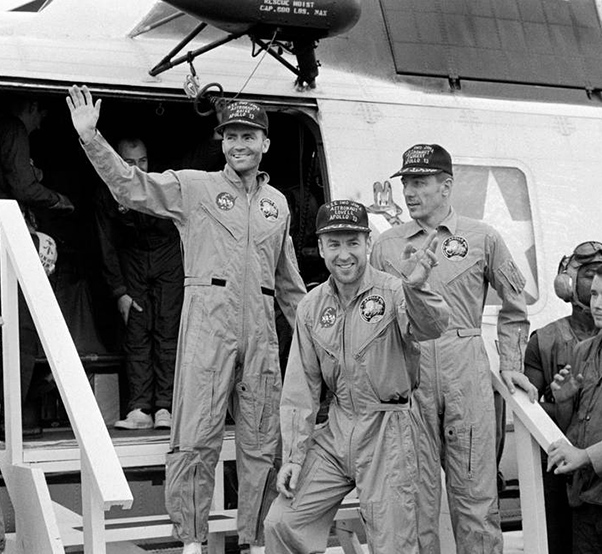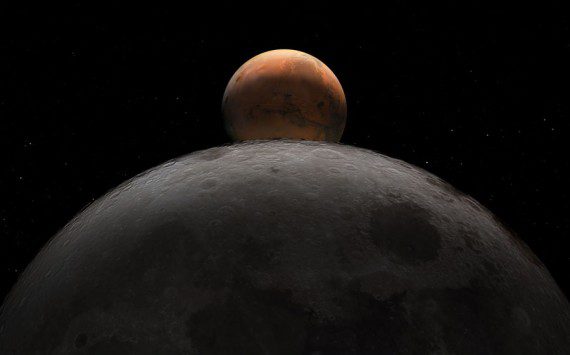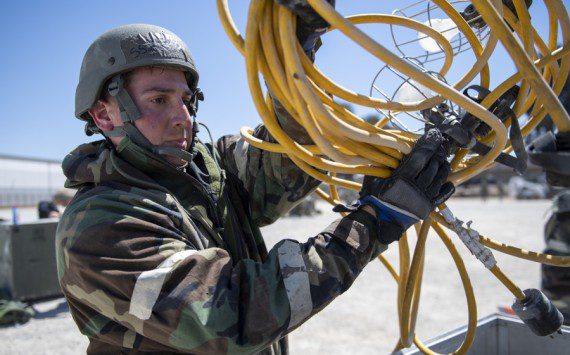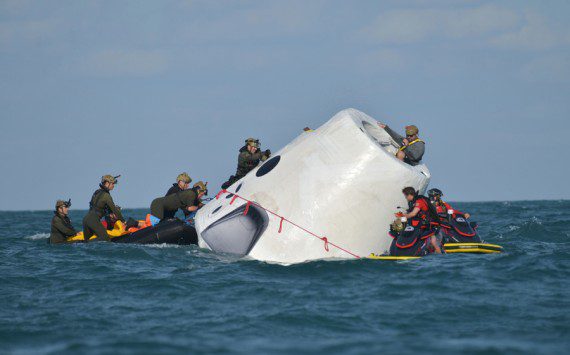As NASA marks the 50th anniversary of the Apollo 13 mission – which has become known as “a successful failure” that saw the safe return of its crew in spite of a catastrophic explosion – the agency is sharing a variety of resources, recognizing the triumph of the mission control team and the astronauts, and looking at how those lessons learned can be applied to its lunar Artemis program.
“Our goal 50 years ago was to save our valiant crew after sending them around the Moon and return them safely to Earth,” said NASA Administrator Jim Bridenstine. “Our goal now is to return to the Moon to stay, in a sustainable way. We are working hard to ensure that we don’t need to respond to this kind of emergency in Artemis, but to be ready to respond to any problems we don’t anticipate.”
The crew of Apollo 13 consisted of Commander James (Jim) Lovell Jr., Command Module Pilot John Swigert Jr. and Lunar Module Pilot Fred Haise Jr. Their Saturn V rocket launched at 2:13 p.m., EST, on April 11, 1970, from Launch Pad 39A at NASA’s Kennedy Space Center in Florida. The command module was named Odyssey, and the lunar module was named Aquarius.
While en route to the Moon on April 13, an oxygen tank in the Apollo service module ruptured. The lunar landing and moonwalks, which would have been executed by Lovell and Haise, were aborted as a dedicated team of flight controllers and engineering experts in the Apollo Mission Control Center devoted their efforts to developing a plan to shelter the crew in the lunar module as a “lifeboat” and retain sufficient resources to bring the spacecraft and its crew back home safely. Splashdown occurred in the Pacific Ocean at 1:07 p.m. April 17, after a flight that lasted five days, 22 hours and 54 minutes.
Due to the ongoing COVID-19 pandemic, no NASA in-person activities are planned or sponsored to mark the Apollo 13 anniversary. However, a wealth of new content and programming, historic documents, still and video imagery are available online, including previously unreleased conversations between the crew of Apollo 13 and the recently restored Apollo Mission Control Center in Houston. This dialogue includes the now-famous exchange between Lovell and mission control during which Lovell utters the phrase, “Houston, we’ve had a problem.”
Among the resources NASA is making available are:
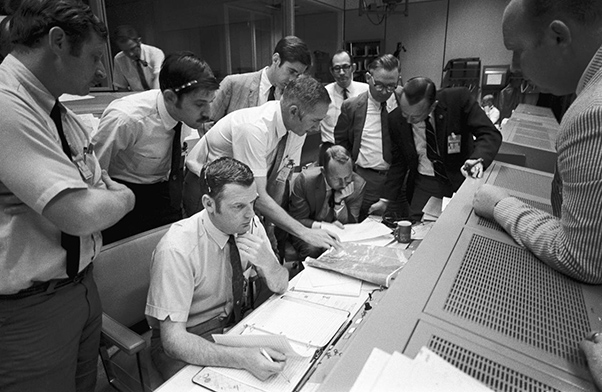
Apollo 13 on NASA TV
NASA TV is commemorating the anniversary with multiple videos and interviews, anchored by an original special program, “Apollo 13: Home Safe,” premiering at 8 p.m., EDT, April 10, on NASA Television and all of the agency’s streaming and social media platforms. The 30-minute program features an interview with Lovell, a conversation with Haise and Flight Directors Gene Kranz and Glynn Lunney, and engineer Hank Rotter, in the restored Apollo mission control room mixed with archival footage from the mission. In addition, NASA TV will air replays of historic mission footage and “pop-up” mission factoids at the exact times the events happened 50 years ago.
Apollo 13 on Social Media
Social media followers are invited to ask questions about Apollo 13 using the hashtag #AskNASA. Experts will provide answers to as many questions as possible on social media and some will be answered in NASA TV’s upcoming #AskNASA episode about the mission.
Starting April 9, the NASA Headquarters Photo Team will share historical images from the photo archives using the @NASAHQPhoto Twitter account, leading up to the splashdown anniversary on Friday, April 17.
On April 10, the @NASA Instagram account will feature part one of an “Apollo 13 by the Numbers” story, a visual recap of the mission as told by the NASA History Office. Part two will follow on Saturday, April 11. On Monday, April 13, the NASA Tumblr page will tell the story about the mission using compelling images and multimedia.
The NASA History Facebook account and @NASAHistory Twitter account also have special content planned during the week of the anniversary.
Houston, we have a podcast (https://www.nasa.gov/johnson/HWHAP)
Listen as Lovell and Haise remember the fateful mission from their perspective 50 years later and reflect on the highlights of their expansive careers and share wisdom gained from their famous mission on its 50th anniversary. Houston, We Have A Podcast is the official podcast of NASA’s Johnson Space Center, in Houston.






